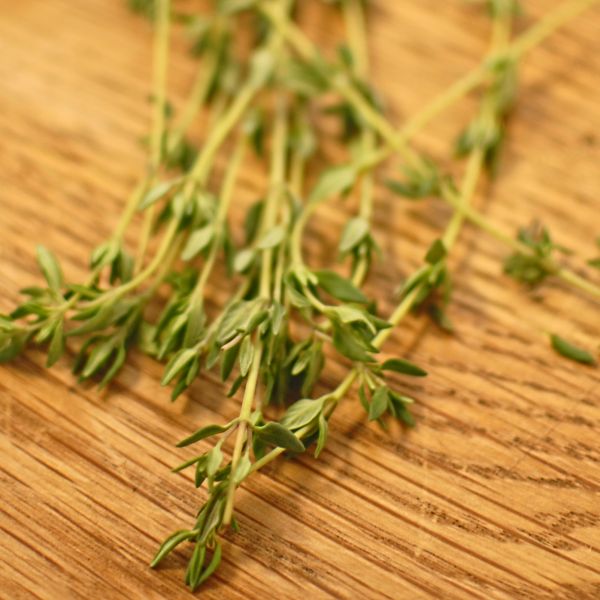Thyme isn’t just one of the most popular culinary herbs today—it also has a long history of use as a medicinal healer and protector. For example, back in the Roman era, it was consumed to prevent and treat poisoning.
Thyme is an herb from the mint family that you probably recognize from your spice set. But it’s so much more than an after-thought ingredient.
What is thyme good for? According to a 2018 report, thyme “exhibits antimicrobial, antioxidant, anticarcinogenesis, anti-inflammatory, and antispasmodic activities.”
In general, it’s excellent at supporting the immune and respiratory systems, as well as the digestive, nervous and other body systems. For example, thyme uses include helping to kill a variety of germs and preventing infections, as well as scavenging free radicals that contribute to the aging process.
Studies have demonstrated that thyme oil is a strong natural antimicrobial, making it a serious weapon against sore throats. Its carvacrol content is a major reason why it’s one of the top essential oils for sore throat relief.
One recent study tested thyme oil’s response to 120 different strains of bacteria isolated from patients with infections of the oral cavity, respiratory tract and genitourinary tract.
The results of the experiments showed that the oil from the thyme plant exhibited extremely strong activity against all of the clinical strains. It even demonstrated a good efficacy against antibiotic-resistant strains.
The ingestion of thyme has been shown to produce antihypertensive activity, which makes it a great herbal choice for anyone suffering from high blood pressure symptoms.
A recent animal study found that thymus vulgaris extract was able to significantly reduce the heart rate of subjects with hypertension. The extract was also shown to reduce cholesterol, triglyceride and LDL levels while increasing HDL cholesterol levels.
For centuries, some of the most common thyme uses have been naturally treating coughs, bronchitis and other respiratory issues.
One study used it within an oral treatment made with a combination of thyme and ivy. The group treated with this combination had a 50 percent reduction in coughing fits that was achieved two days earlier than the placebo group. In addition, the same group reported no more adverse events than the placebo group and no serious adverse events at all.
Further research confirms this and suggests this herb makes an effective bronchitis natural remedy as well.
As mentioned above, extracts derived from this herb are used in dental products like toothpastes and mouthwashes. Compounds in this herb can help to prevent infections from developing in the mouth, and keep teeth healthy by decreasing plaque and decay.
Post time: Jul-17-2020
